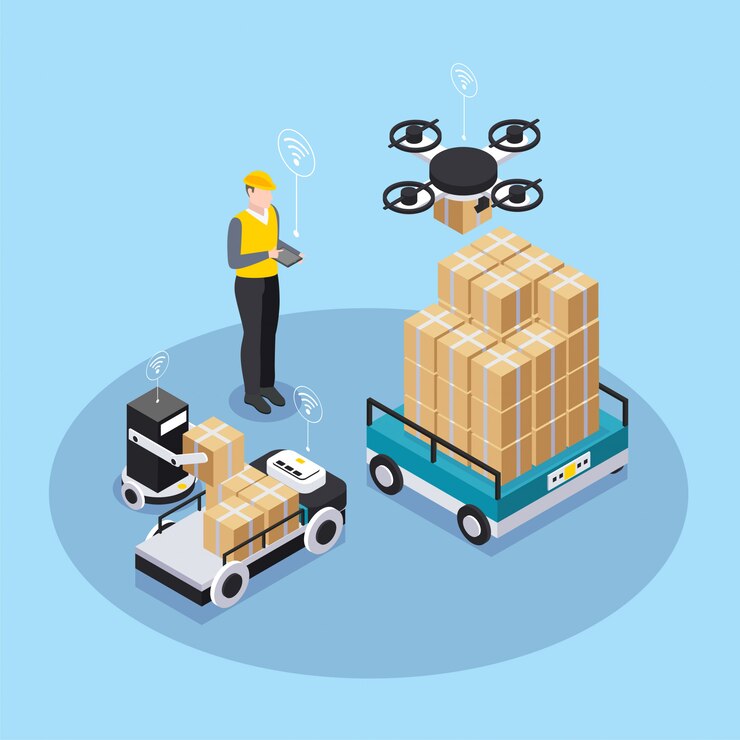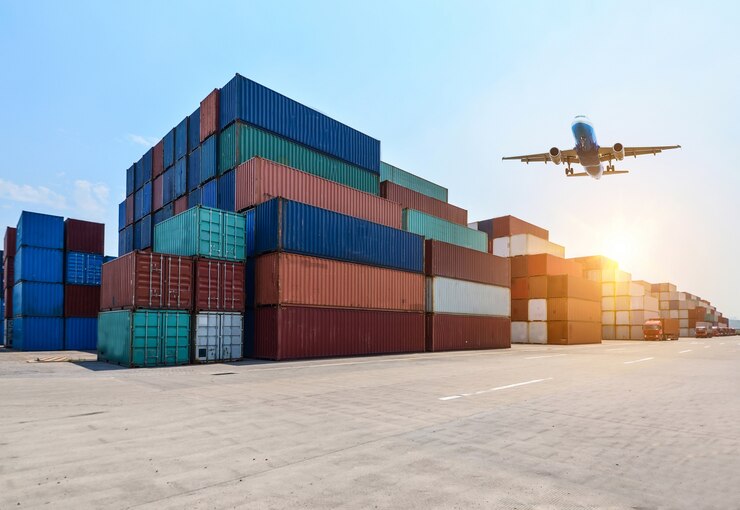Transportation and logistics companies continually pursue innovative strategies to enhance flexibility, sustainability, and transparency. These elements are crucial for supply chain operations as they expand globally. Embracing emerging technologies such as logistics technology is vital for supporting businesses financially and operationally.
These cutting-edge tech solutions enhance supply chain efficiency, productivity, and cost-effectiveness, impacting everything from initial product development to last-mile delivery options.
Traditionally, logistics management within the supply chain operates in silos. The logistics division is fragmented into smaller teams that work independently and only collaborate when necessary.
In an ideal scenario, this setup can be effective. The forecasting division utilizes data from the analytics team to assess demand and predict sales. Marketing strives to balance supply and demand while expanding the company’s market share. Various roles exist within other departments as well.
However, this approach has a significant drawback: a lack of coordination. When each segment of the chain operates independently without awareness of other departments’ activities, roadblocks arise. There are no shared objectives for problem-solving, so issues in one area can quickly affect another. For example, forecasting errors can impact marketing and sales.
This means that problems that could be easily resolved in a collaborative environment persist and inconvenience the business for longer periods.
Information technology (IT) has revolutionized the transportation and logistics sector. By automating processes and enhancing communication, IT has accelerated progress, reduced costs, and improved shipping efficiency.

Five Reasons to Invest in Logistics Technology
Advancements in logistics technology are pushing boundaries and transforming supply chains. Consumers now expect to get everything readily and conveniently, often with expedited and same-day shipping. It’s not uncommon for customers to receive items on the same day they place their order.
Enhanced technology has reduced costs and errors while boosting supply chain productivity. These developments benefit the logistics sector across various areas, including shipping, supply chain management, international shipping by air and sea, and trucking.
1. Efficiency Through Automation
Technological breakthroughs such as robotics, sensors, tracking software, and automation create a “touchless” supply chain infrastructure. Logistics managers can streamline operations and automate maintenance using artificial intelligence (AI), machine learning (ML) algorithms, and advanced computer-based analytics and software. These solutions are boosting productivity across all market sectors.
Robotic process automation (RPA) frees the workforce from mundane tasks like data entry and number crunching, allowing them to focus on higher-level work. RPA performs these tasks more precisely and efficiently. Automation also yields more accurate results with fewer mistakes, helping businesses avoid errors and thereby increasing customer satisfaction.
2. Transparency & Visibility
Full product tracking from the factory to the final delivery location enhances supply chain visibility. Cloud-based communication systems, high-speed internet, advanced software, sensors, and other logistics technologies enable end-to-end stakeholder visibility.
Software, in particular, facilitates centralized information management, allowing operators to comprehensively understand their supply chain, from manufacturing and purchasing to assembling, distributing, and last-mile delivery. Increased visibility enables more accurate forecasting while analyzing past data, which improves decision-making.
3. Lower Costs
Productivity-enhancing technology reduces costs while improving services by decreasing reliance on human interaction and emphasizing information technology throughout the supply chain. Sensor devices, tracking software, and barcoding technology facilitate this transformation.
AI and ML software can optimize delivery routes to shorten shipment times, helping businesses make decisions that lead to efficient cost-reduction strategies.
While some technological solutions may initially seem expensive, they offer a significant return on investment. The low cost of implementation, particularly for software solutions, is a substantial factor. Advances in technology, increased competition, and widespread adoption are making hardware solutions more affordable. Additionally, the exponential benefits of these technology solutions contribute to their high return on investment.
4. Flexibility and Agility
Organizations leveraging logistics technology can swiftly adapt to shifting market conditions, facilitating easier adjustments to meet evolving demands and enabling businesses to expand market share, revenue, and profitability.
Enhanced access to information and simulations empowers businesses to promptly address issues and capitalize on new business opportunities. A deep understanding of key performance indicators (KPIs) and customer data facilitates informed decision-making. Operational agility is crucial; organizational, process, or systemic impediments must be swiftly identified and addressed to maintain responsiveness.
Leading logistics technologies recommend optimal actions, enabling immediate implementation in the dynamic environment of modern supply chains, which is essential for staying competitive.
5. Better Customer Experience
Thanks to online tracking and delivery statuses, customers can now monitor the progress of their deliveries in real-time and receive timely updates upon arrival of their orders, alleviating concerns about late deliveries and reducing anxiety.
Moreover, technology has empowered businesses to offer a range of consumer-friendly services, such as same-day and flexible delivery options.
Increased service levels and consistently meeting client expectations boost retention and satisfaction. Buyers prioritize speed and efficiency, with 88% of consumers willing to pay for a same-day delivery service.

Practical Examples of Logistics Technology for Supply Chains
Regardless of the industry, technology serves as the backbone of all businesses. However, leveraging cutting-edge technology in logistics is crucial to maintaining a competitive edge.
The transportation and logistics sectors are under pressure from the evolving demands of the supply chain landscape, including increased sustainability expectations, omnichannel shopping trends, and rapid urbanization. Despite these challenges, there are ample opportunities for growth through innovation, providing avenues for businesses to expand and thrive.
Internet of Things (IoT) and Radio Frequency Identification (RFID)
Modern devices integrate sensors and Wi-Fi capabilities into various products like cars, ceiling fans, and cell phones, forming the Internet of Things (IoT), which connects everyone through accessible Wi-Fi and the Internet. IoT presents numerous opportunities for the supply chain, including cost reduction and risk mitigation by minimizing delays.
Dispatchers or alarm systems equipped with sensors monitor cabins, cargo ships, railroads, and autonomous vehicles, providing real-time information to staff to preemptively address potential threats.
While IoT is not new, its impact on logistics remains profound. Businesses commonly employ RFID technology for inventory management, leveraging its efficiency to save time and effort.
RFID tags or sensors are affixed to products, transmitting data via radio waves, which warehouse and fulfillment staff promptly process. While similar to barcodes, RFID delivers data swiftly, making it ideal for fast-paced businesses.
Companies utilize RFID tags extensively in distribution facilities to track shipping containers.
Artificial Intelligence
AI has gained significant attention recently, especially with the popularity of generative language models and image generators among the public. Artificial intelligence (AI) refers to machines and computers replicating human intellectual functions, offering numerous benefits and practical applications in logistics.
In supply chain management, AI-driven automation serves as a predictive tool to optimize warehouse operations, anticipate shifts in demand, and mitigate issues related to shortages and surpluses, thereby reducing the risk of human error.
Robotics and computer vision play pivotal roles in automating mechanical tasks, while intelligent bots enhance the overall customer shopping experience.
Transportation Management System (TMS)
A TMS (Transportation Management System) is a crucial logistics platform that assists companies in efficiently managing and optimizing the movement of their products within a broader Supply Chain Management (SCM) framework.
TMS systems primarily focus on managing carriers and optimizing delivery routes. They also facilitate secure payment processing, document printing and storage, and real-time shipment tracking, thereby streamlining the entire shipping process from start to finish.
Staying abreast of the latest technological trends is imperative for maintaining operational efficiency and competitiveness in the supply chain industry. Continual advancements in logistics technology are delivering substantial benefits to supply chains, with ongoing improvements promising even greater efficiencies in the future.
Aratum accelerates your business growth with advanced logistics technology. Our network of global warehousing partners and inventory management software provides end-to-end fulfillment. Jadwalkan demo and get started with our easy-to-use platform.
The cover photo of this article was sourced from freepik.
